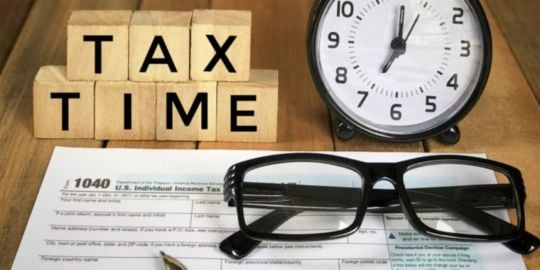Hello - I apologize if this questions has been asked and answered multiple times before, I haven't been able to find a clear answer as of yet.
My husband and I are US citizens and want to move to Thailand in June of 2018. I work online and he will hopefully be doing the same.
What's the best way we can go about doing this? How many 60-day visas can we apply for and what are the requirements for an education visa? We'd obviously like to do this legally.
We'd be returning to the U.S. twice a year for about a month each time.
Any insight would be great. Thanks!
U.S. citizens wanting to move to Thailand
Grape vine talk is that the Thai immigration in now restricting the number of cross border runs of individuals. I can't recall the restricted number.
Working on line or not you would technically be in violation of working in Thailand without a work permit. Even so there are many people working under the radar. However if they are caught they would be escorted (or arrested) to the airport and put on a plane out of the country. Plus they would be black listed and not allowed back into the country, ever.
On the other hand Thailand is trying to devise a legal process to provide visa's for your situation. It would benefit Thailand because they would be creating a process to collect an income tax. However there are many details to work out. One is that many IT Nomads don't want to pay any income tax to Thailand, or anyone else. Considering the way Thailand operates it may take some time before such positive legislature comes to fruition,
You can do what you want, but you also run risks.
If you want to be legal I would recommend contacting the Thai Embassy and getting information from the source rather than second hand.
IT Nomads are illegal, and when dealing with authorities often encounter complications.
If you work online, then your degree of vulnerability depends on how much exposure you have. If you must solicit business to produce an income, then your exposure is fairly high, as this is often what the Thai authorities are looking for. On the other hand, if you simply perform tasks for US client(s), and if you are paid by direct deposit to a US bank, then your income is difficult for the Thai authorities to trace. Either way, as others say, you are in violation of the law. I know several expats, US, UK, France, Netherlands, that perform duties online for clients in their home countries, are then paid in their home countries, and they have never been questioned in any way, but they are careful.
Regarding a visa, there are legal ways, albeit very expensive, to obtain residency status in Thailand. I know of a couple of expats that have gone this route, but it does involve a very large deposit of cash. You can also obtain a business visa. My understanding of a business visa is that you must show that you have the funds (2 million baht(?)) sufficient to open a business, or you must show that you have completed a TEFL course, and will teach when you arrive in Thailand. For the latter you need not show any funding. Still another type of visa is a retirement visa. For this you must be over 50 years old, and show that you have at least 65,000 baht per month in income.
Good luck.
Informative post.
I believe that a business visa requires employment of X number of employees, and ultimately demonstrate some revenue that will, is or has been taxed. I believe that there is a ten year visa available but is very costly and time consuming.
My understanding is that an expat can open or buy a business and manage it, but may not physically work at the business without a work permit. Getting a work permit, as I understand, then comes with the requirement of hiring four Thais for every foreigner working in the business. Even with a work permit a foreigner may do a job only if it is a position that cannot be filled by a Thai. But I must add that I have never done this nor researched it with the Thai authorities, so i am relying only on what i have heard.
I found you comments interesting about working online. From what I understand Chiang Mai is the IT capital of Thailand. As such it seems to be a magnate for IT Nomads. I don't know any of the specifics but I understand that that these IT people have a lot of problems with long stays and/or visas. Last year immigration changed the conditions for the border runs (I no longer remember the specifics) and that has created significant problems. From what I heard there's a limit to how many border runs can be made.
In terms of your other immigrations particulars I see loop holes. For example, If you, as a Farang, have a business you do not need a work permit but you are not allowed to do any work that a Thai could do, as I understand it.
It almost seems like you are quoting information from the RIPERS and JC. If so then some of that information is out of date and misleading. Considering the point that immigration changes often, sometimes on a daily basis or which officer you talk to, it is best to contact immigration to get specific information, except for IT Nomad visas.
Just a heads up.
from what I understand Chiang Mai is the IT capital of Thailand.
It is so hard to ED Visa without been going to classes,maximum allowed 90 days is 2 times for ASIAN not sure for American
I heard this month from an individual who had a business visa here for years that they're now charging 600 Euro/month for a business visa. So he's doing the overnight train to Laos every 30 days or so. Fun!
I have not heard this, and I know many with business visas. There must be some misunderstanding because if this were the case, about half a dozen expat-owned places where I eat regularly would be filling my ears with the new regs.
All of us have somewhat ignored the education visas, and for this couple that may well be their ticket. Again, I have limited knowledge, but I believe the education visa is for one year and requires that you enroll in classes for the entire year to study the Thai language. It has always been the most abused visa, with foreigners getting new ed visas six or eight years in a row and not studying one speck of Thai. So lately I believe the authorities monitor things like class attendance and Thai-speaking ability. But if someone is serious about learning Thai, which all really should do, then it is an appropriate visa. Have things changed? Is the education visa still available? I don't know for sure, but maybe someone out there knows first hand.









